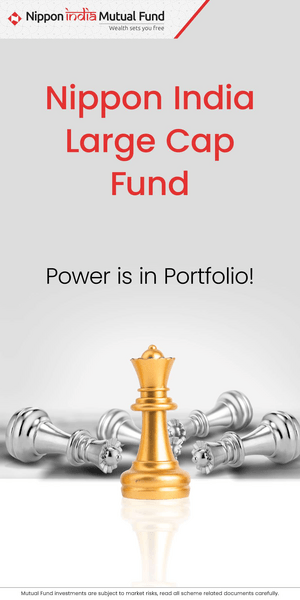What is Sensex ETF

What is BSE Sensex Index?
BSE Sensex Index is the benchmark index that tracks the performance of portfolio of 30 blue-chip companies. It includes 30 largest companies by market capitalization in the Bombay Stock Exchange. Sensex along with the Nifty 50, are the two leading market indices in India. They are considered to be the barometers of the entire stock market in India. Sensex ETFs are among the most popular exchange traded funds.
How is BSE SensexIndex constructed?
Sensex was launched in 1986 and has values from 1979. Sensex covers more 47% of the total market cap of all listed companies in BSE (as on 18th August 2021). The index represents 30 largest companies based on float adjusted market capitalisation. The weights of the index constituents are based on free float market capitalization. Free float market capitalization means the market cap of free floating shares, which are shares held by the public. Free float shares are shares which are not held by the promoters and their families, related parties, management of the company and the Government. In free float market capitalization based index, the companies with highest free float market cap will have higher weights in the index. The index is calculated on a real time basis and rebalanced semi-annually in June and December.
Key statistics of BSE Sensex
As on 18th August 2021

Source: Bombay Stock Exchange, Advisorkhoj Research, as on 18th August 2021
Top 10 stocks in BSE Sensex
As on 18th August 2021 in INR lakh crores

Source: Bombay Stock Exchange, Advisorkhoj Research, as on 18th August 2021
Characteristics of Sensex stocks
- They are among the largest companies in India. Median market cap of Sensex stocks is about Rs 2.5 lakh crores.
- They are market share leaders in their respective industry sectors. They enjoy significant competitive advantage and economic moats due their size.
- These companies are usually better positioned to survive economic downturns compared to smaller sized peers
- These stocks are well researched and provide better visibility of returns compared to midcap and small cap stocks
- They have a large percentage of institutional (foreign institutional investors and domestic institutional investors) ownership. As a result they are among the most liquid stocks in the market.
Performance of Sensex Total Returns Index
The chart below shows the performance of Sensex Total Returns Index over the last 10 years (ending 25th August 2021). Over the past 10 years, Sensex TRI has given 10.29% CAGR returns outperforming both gold (6.6% CAGR) and bank Fixed Deposits (7.3% CAGR).

Source: Bombay Stock Exchange, Advisorkhoj Research. Period: 01.08.2011 to 30.07.2021. Disclaimer: Past Performance may or may not be sustained in the future.
How to invest in Sensex?
Exchange Traded Funds (ETFs) are relatively one of the best ways to invest in market indices. ETFs do not aim to beat the index but merely replicate their performance – reduce tracking errors. Since ETFs are passively managed, their cost is relatively lower than that of an actively traded mutual fund scheme. Lower cost will generally result in higher returns for the same level of performance.
Why invest in Sensex ETFs?
- We had discussed the characteristics of Sensex stocks earlier in this post. Sensex ETFs can provide stability to investment portfolio with relatively lower downside risks in uncertain and volatile markets.
- Sensex ETFs are diversified investments with exposure to multiple industry sectors like Banking and Financial Services, Oil and Gas, Petrochemicals, Information Technology, FMCG, metals, pharmaceuticals, infrastructure, power, cement and construction etc.
- Actively managed diversified equity funds are generally overweight / underweight on certain stocks / sectors relative to the benchmark index. This may give rise to unsystematic risks. There is no unsystematic risk in Sensex ETFs because they replicate Sensex returns.
- Sensex ETFs are low cost investments. For the same level of performance, lower costs can translate into higher returns over long investment tenures due to the effect of compounding.
- Sensex ETFs are among the most popular ETFs. Since Sensex ETFs have relatively higher AUMs compared to other ETFs tracking some other indices, their costs are lower relative to many other ETFs.
Who should invest in Sensex ETFs?
- Investors who want capital appreciation with relatively lower volatility compared to the broader market.
- Investors who want to avoid unsystematic risks
- Investors who have moderately high to high risk appetites
- Investors who have sufficiently long investment tenures, at least 5 years
- You need to have demat accounts to invest in ETFs. If you do not have a demat account, then you can invest in Sensex index funds. Index funds are mutual fund schemes, which are managed exactly in the same way as ETFs. The cost of index funds is generally higher than that of ETFs
Investors should consult with their financial advisors if Sensex ETFs are suitable for their investment needs
Suggested reading:
https://www.advisorkhoj.com/nimf/all-that-you-wanted-to-know-about-nifty-it-etf
Mutual Fund Investments are subject to market risk, read all scheme related documents carefully.
RECOMMENDED READS
LATEST ARTICLES
- Two new promising smart beta funds: Nippon India Nifty 500 Low Volatility 50 and Nifty 500 Quality 50 Index Funds
- Going hybrid in the current environment
- Asset allocation is key to long term investing: Hybrid funds make a lot of sense in current market conditions
- Should you invest in momentum funds: Why momentum works in investing
- Nippon India Active Momentum Fund: Invest in winners
The information being provided under this section 'Investor Education' is for the sole purpose of creating awareness about Mutual Funds and for their understanding, in general. The views being expressed only constitute opinions and therefore cannot be considered as guidelines, recommendations or as a professional guide for the readers. Before making any investments, the readers are advised to seek independent professional advice, verify the contents in order to arrive at an informed investment decision.
Mutual Fund investments are subject to market risks, read all scheme related documents carefully.
Quick Links
Follow Nippon India MF
More About Nippon India MF
POST A QUERY





